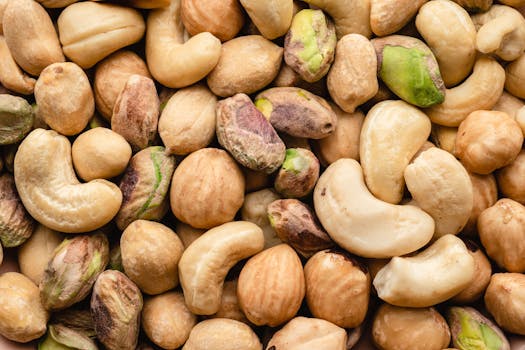Are you confused about the difference between whole and processed super foods? In today’s fast-paced world, it’s essential to understand the importance of what we put into our bodies. Let’s dive into the world of whole and processed super foods to demystify the confusion.
What are Whole Super Foods?
Whole super foods are foods that are in their natural, unprocessed state. These foods are typically packed with nutrients and antioxidants that are beneficial for our health. Examples of whole super foods include fruits, vegetables, nuts, seeds, and grains.
When we consume whole super foods, we are getting the full spectrum of nutrients that nature intended. These foods are rich in vitamins, minerals, fiber, and phytonutrients that can help boost our immune system, improve digestion, and reduce the risk of chronic diseases.
What are Processed Super Foods?
On the other hand, processed super foods are foods that have been altered from their natural state through cooking, refining, or adding chemicals. These foods often contain added sugars, unhealthy fats, and preservatives that can be harmful to our health. Examples of processed super foods include packaged snacks, sugary drinks, and fast food.
When we consume processed super foods, we are often getting empty calories that provide little to no nutritional value. These foods can contribute to weight gain, inflammation, and an increased risk of diseases such as diabetes and heart disease.
Key Differences Between Whole and Processed Super Foods
- Nutrient Content: Whole super foods are rich in essential nutrients, while processed super foods are often stripped of their nutrients during processing.
- Fiber: Whole super foods are high in fiber, which is important for digestion and overall health. Processed super foods are typically low in fiber, which can lead to digestive issues.
- Sugar Content: Processed super foods often contain added sugars, which can contribute to weight gain and other health issues. Whole super foods contain natural sugars that are accompanied by fiber, which helps regulate blood sugar levels.
- Fat Content: Processed super foods may contain unhealthy fats, such as trans fats, which can increase the risk of heart disease. Whole super foods contain healthy fats, such as omega-3 fatty acids, which are beneficial for heart health.
Making the Right Choices
When it comes to choosing between whole and processed super foods, opt for whole foods whenever possible. Incorporate a variety of fruits, vegetables, nuts, seeds, and whole grains into your diet to ensure you are getting a wide range of nutrients.
If you do choose processed super foods, be sure to read the labels carefully and opt for options that are lower in added sugars and unhealthy fats. It’s essential to find harmony and practice moderation.
By understanding the difference between whole and processed super foods, you can make informed decisions about what you eat and ultimately lead a healthier life.
So, what will you choose for your next meal? Whole super foods that nourish your body, or processed super foods that may harm your health?
Remember, your choices today will impact your health tomorrow!

